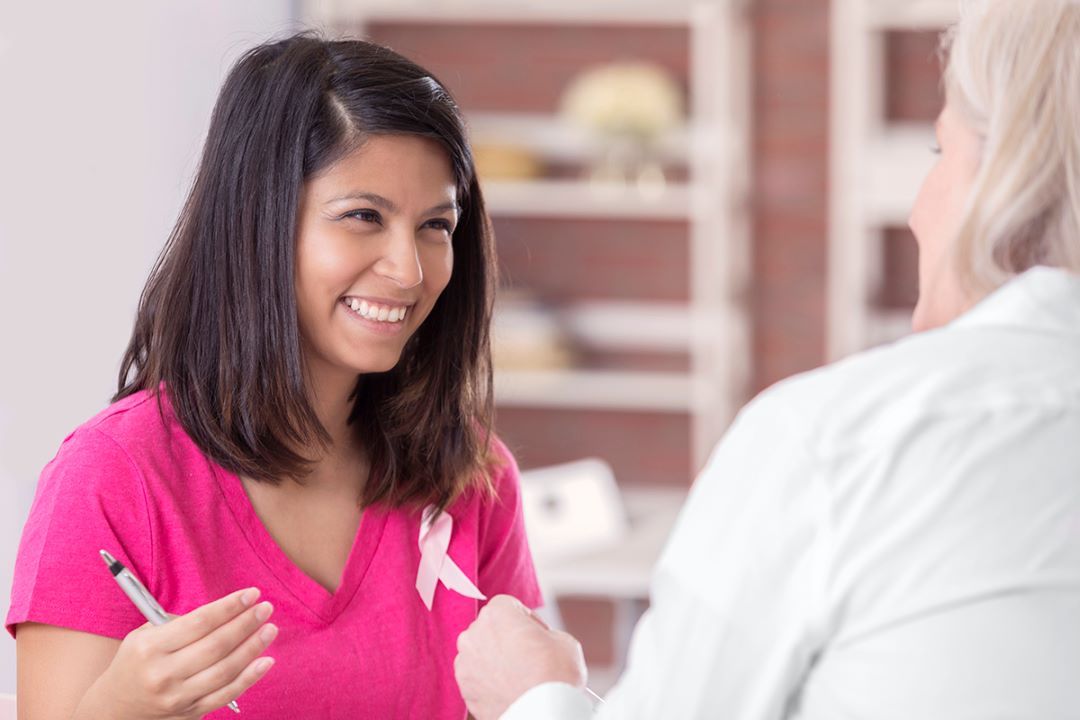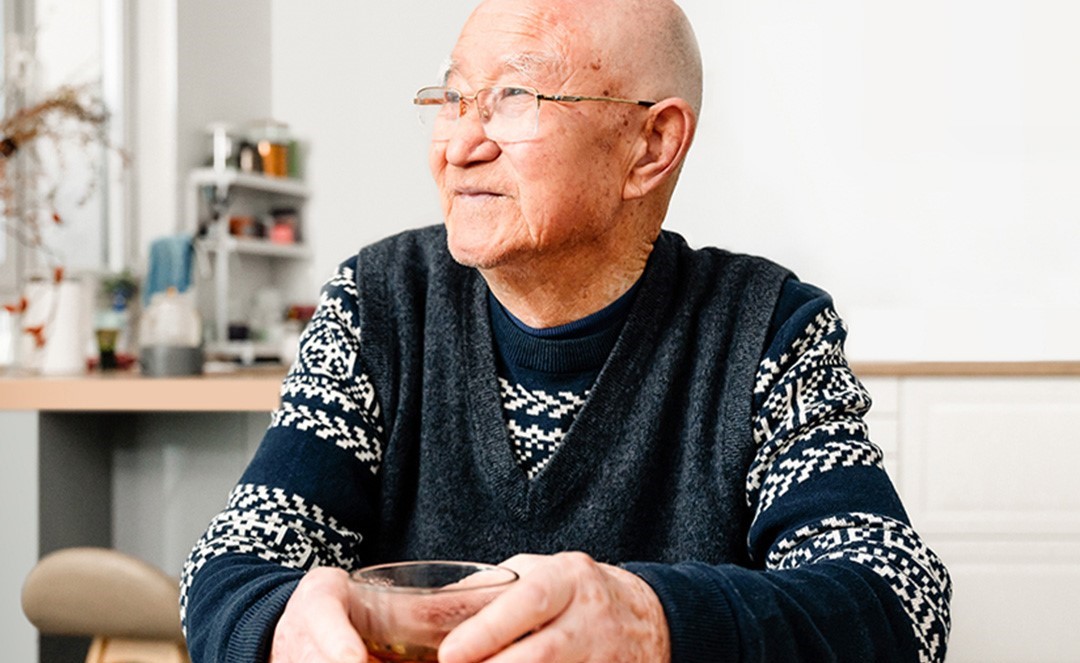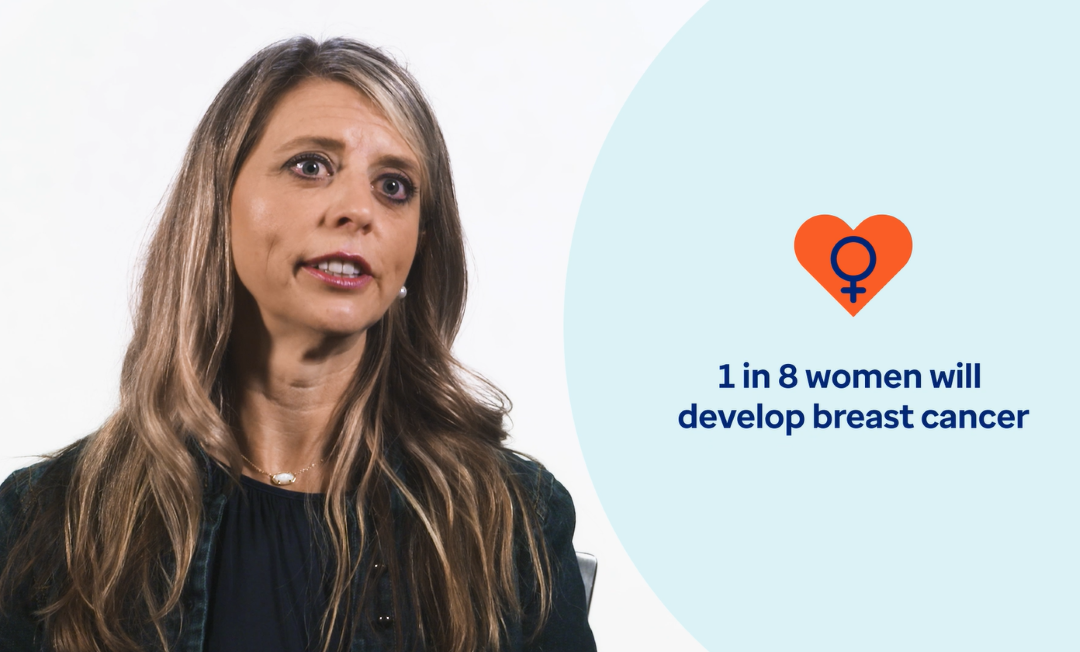Get high-quality cancer care
We offer care for all types of cancers. And your care team will make sure you get screened for the most common cancers, including:
- Breast cancer
- Colon and rectal cancers
- Lung and bronchus cancers
- Prostate cancer (a gland in the male body that creates sperm)
- Skin cancer
Ask our doctors
What to know about breast cancer
Hear from our doctors about current recommendations for screenings and the importance of early detections. If you find out you have cancer, our doctors and care teams are here to make sure you get the care you need, when you need it.
Cancer care FAQ
Your care team will include the specialists who best meet your needs, such as:
- Medical specialists
- Nurses who specialize in cancer care
- Oncologists (cancer doctors)
- Surgeons
- Other care professionals, including nutritionists (experts in healthy eating) and physical therapists
Your team will help you understand your care options and answer your questions. We’ll also update your primary care doctor and any other doctors who help you.
Chemotherapy, also known as chemo, is a type of cancer care that uses powerful drugs to slow down and stop cancer cell growth. These drugs also fight cancer cells that may have spread to other parts of the body. Often, chemotherapy is used with other types of care, such as radiation and surgery.
Our care plans include a holistic cancer care approach. This means we learn all about your:
- Emotional well-being
- Daily habits and lifestyle
- Overall physically health
- The support you’re getting from family and friends
If we think making certain changes will help you, we’ll suggest them. The goal is to help you feel better and improve your general health.
The immune system is the part of the body that fights illness. Immunotherapy helps it work harder to fight cancer cells. If you want immunotherapy, we'll help find the best plan for you. Immunotherapy works better for some cancers than others.
Radiation uses beams of energy to kill cancer cells and shrink tumors, which are cancerous growths. Radiation can be used in a number of ways:
- As your main type of cancer care
- Before surgery, to help shrink a cancerous growth
- After surgery, to keep any remaining cancer cells from growing
- In cases of advanced cancer, to help stop pain and other symptoms
There are many types of cancer surgery. Surgery is typically done to help reach one or more of the following goals:
- Preventive surgery removes tissue that is in danger of becoming cancerous. This helps lower your chances of getting cancer.
- Diagnostic surgery (a biopsy) is done to get a tissue sample. The sample is studied to see if it’s cancerous and what type of cancer it is.
- Staging surgery helps find out how big a cancerous growth is and if the cancer has spread.
- Curative surgery is done when there is hope of removing all of the cancerous tissue.
- Palliative surgery is used in cases of cancer that can’t be cured. The goal is to help ease pain.
- Plastic and reconstructive surgeries are done after the main cancer surgery. The goal is to restore a normal appearance or help parts of the body work better.
Wellness care can play an important role in supporting someone with cancer by:
- Improving quality of life
- Helping with symptoms and side effects
Types of wellness care that can help people with cancer include:
- Nutritional therapy (help with healthy eating)
- Physical therapy (caring for pain and weakness through exercise)
- Mind-body therapies
- Acupuncture
- Cancer support groups
Helpful cancer resources

Breast cancer screening tests: what you need to know
Finding cancer early is important for getting the care you need. Learn more about breast health.

Your prostate after 65: What’s normal
Age increases the chances of prostate problems. Learn more about finding prostate cancer early and what to expect with your care.

6 colon cancer questions to ask your doctor
More than a million Americans are living with colon cancer. Here’s why getting screened early is so important.
*Cancer care services vary by location. Check with your doctor’s office or health plan for specific information.
Optum arranges for or provides medical and other clinical services in accordance with laws in each state it operates. Physicians or providers referenced on this website are to those who are either part of independent practices or to those medical practices managed by or owned, where permitted, by Optum. In all circumstances, physicians and other licensed professionals have complete authority for all medical decision-making and patient care. Optum does not determine or set the methods, standards, or conduct of the practice of medicine or health care provided by any of the practices or their physicians or other licensed professionals.



